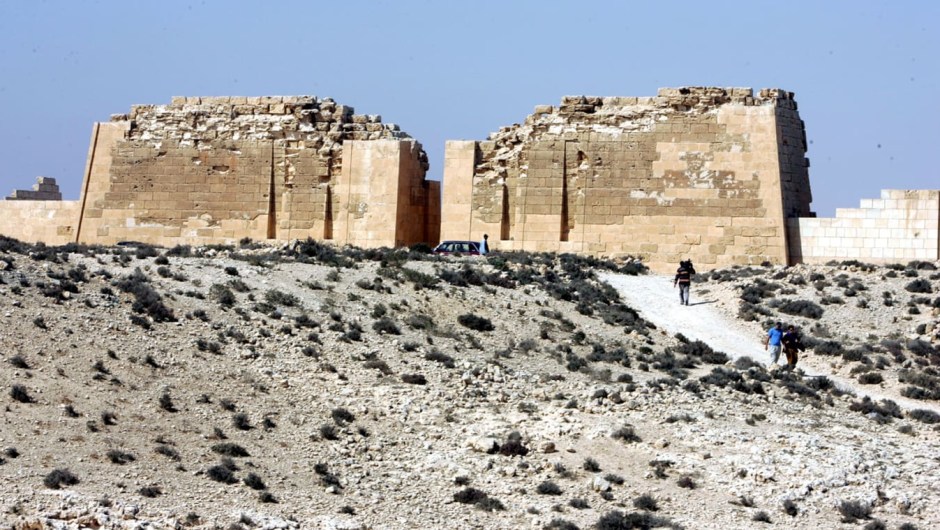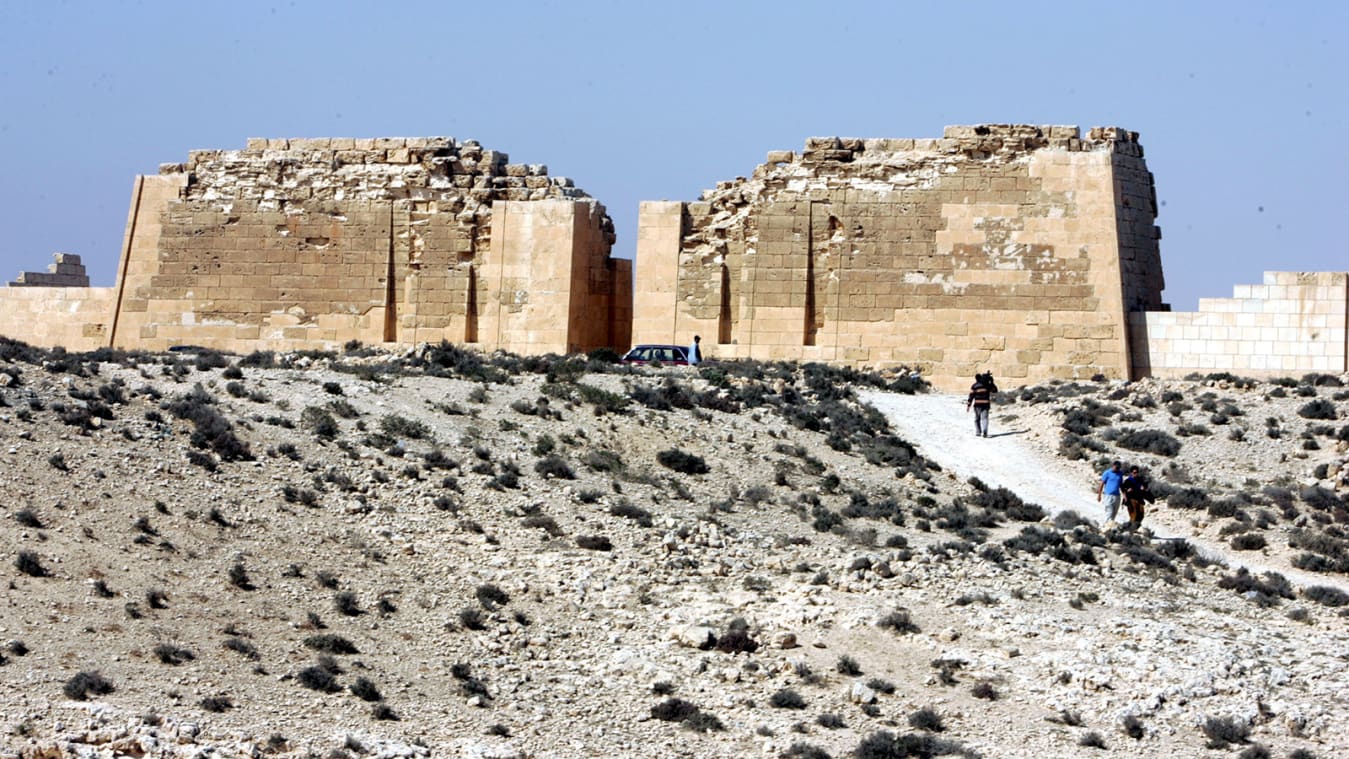
(CNN) — Kathleen Martinez, an archaeologist at the University of Santo Domingo, has been searching for Cleopatra’s missing tomb for nearly 20 years. Now he believes he has made an important breakthrough.
Martinez and his team discovered a 1,305-meter tunnel, located 13 meters underground. Advertising Recently the Egyptian Ministry of Tourism and Antiquities unveiled an architectural design experts described as an “engineering marvel”.
“The excavation revealed a large religious center with three sanctuaries, a sacred lake, more than 1,500 objects, busts, statues, gold pieces, a large collection of coins representing Alexander the Great, Queen Cleopatra and the Ptolemies,” Martinez told CNN. .

Kathleen Martinez discovers a tunnel that leads to the Tomb of the Lost. Credit: Kathleen Martinez-Nazar/Taposiris Magna Project
“The most interesting discovery is the complex of tunnels and sunken structures leading to the Mediterranean,” he added. Exploring these underwater structures will be the next step in the search for the lost tomb of the Egyptian queen, which began in 2005.
“My perseverance cannot be confused with obsession. I admire Cleopatra as a historical figure. She suffered from a Roman campaign that tried to deface her image,” Martinez said.
“She was a cultured woman, probably formally educated at the Alexandria Museum, a center of culture in her time,” says Martinez, who said she admired Cleopatra as a student, linguist, mother and philosopher.
When her husband, the Roman general Antony, died in her arms in 30 BC, according to popular belief, Cleopatra took her own life shortly after by letting an asp bite her. The moment is immortalized in art and literature, but, for more than two thousand years, little is known about the whereabouts of his remains.
A series of clues convinced Martínez that Cleopatra’s tomb might be in the Temple of Osiris at Tabosiris Magna, a ruined city on Egypt’s northern coast where the Nile meets the Mediterranean Sea.
Chief among them is the name. According to Martínez, Cleopatra was considered “the human incarnation of the goddess Isis” in her time, while Antonio belonged to the god Orisis, the husband of Isis.
Martinez believes that Cleopatra may have chosen to bury her husband in the temple to reflect this myth. Of all the 20 temples around Alexandria, Martínez said, “there is no other place, structure or temple like the Temple of Taposiris Magna.”

More than 1,500 artifacts have been found in the excavations so far. Credit: Egyptian Ministry of Tourism
In 2004, Martinez took his theory to Egyptian archaeologist Zahi Hawass, who was then Egypt’s minister of antiquities. His plan was approved a year later.
After years of searching, Martinez thinks he’s getting close.
Excavations so far have revealed a “temple dedicated to Isis,” which Martinez believes is another sign that the lost tomb is nearby, as well as tunnels under the sea.

The search for the missing tomb has taken Martinez to the bottom of the Mediterranean Sea. Credit: Kathleen Martinez-Nasser/Taposiris Magna Project
Now, Martinez said, he is “at the beginning of a new journey”: underwater excavations.
According to a statement from the Ministry of Tourism and Antiquities, the Egyptian coast has been affected by earthquakes for centuries, causing parts of Tamposiris Magna to collapse and sink beneath the waves.
That will be the site Martinez and his team will look at next. Although “it’s too early to know where these tunnels lead,” he remains optimistic.
If the tunnels lead to Cleopatra, “it will be the most important discovery of the century,” he said.


:quality(85)/cloudfront-us-east-1.images.arcpublishing.com/infobae/BH6NLAQGXJGADFWTENBUV7Z7RQ.jpg)
:quality(85)/cloudfront-us-east-1.images.arcpublishing.com/infobae/3GK63ATFOMFAYNUAQKUL4WUJFM.jpg)

:quality(85)/cloudfront-us-east-1.images.arcpublishing.com/infobae/SJ35ZLSJ5NB4BWVRJPSK74P7AQ.jpg)